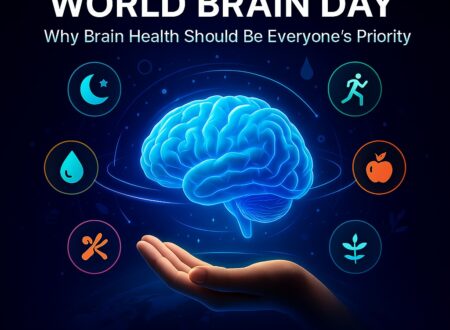THE SIGNIFICANCE OF KIDNEYS IN THE HUMAN BODY:
When people think about vital organs, they usually think about heart and brain, but there is another pair of organs that works silently in the human body – our kidneys. These two bean shaped organs, sit just under the rib cage on either side of the spine, and although they don’t get equal attention, they definitely play an important role in keeping the body healthy.
WHAT IS THE ROLE OF THE KIDNEYS IN THE HUMAN BODY?
The kidneys are like the body’s natural filtration system. Every single day, they filter around 50 gallons of blood to remove waste, excess fluids, and toxins. That waste gets turned into urine, which we eventually get rid of when we go to the bathroom. Without the kidneys doing this job, harmful substances would build up in the body and cause serious health problems. Furthermore, the kidneys are also in charge of keeping our body’s fluids and minerals such as sodium, potassium, and calcium in the right balance. The kidneys also help prevent health issues such as dehydration, muscle pain, even blood pressure problems and helps in maintaining the body’s pH levels for the normal functioning of the organs.
Additionally, it is worth noting that the kidneys also produce what is known as “erythropoietin.” This hormone tells the bone marrow to make more red blood cells when oxygen levels are low. And they help activate Vitamin D into a form that the body can actually see, which is needed for the development of healthy bones.
WHAT HAPPENS WHEN KIDNEY STOPS FUNCTIONING PROPERLY?
When kidney stops functioning properly, it affects the whole body. Toxins build up, blood pressure imbalance, and the body might not produce enough red blood cells thereby leading to fatigue, swelling, and other serious symptoms such as Chronic Kidney Disease (CKD). In severe cases, when the kidney fails completely, a person needs dialysis or even a kidney transplant to stay alive.
TYPES OF KIDNEY DISEASE:
- Chronic Kidney Disease – in this case, the kidney function gradually declines overtime.
- Acute Kidney Injury – there is a sudden loss of kidney function.
- Glomerulonephritis – it leads to inflammation of glomeruli which are tiny filters inside the kidneys that filters the blood to remove waste products from a human body.
- Polycystic kidney disease – this is a genetic disorder where fluid filled cysts form in the kidneys, enlarging them and leading to impairments.
- Kidney stones – hard deposits made of mineral and salts form in the kidneys.
- Pyelonephritis – this happens due to urinary tract infection that affects the kidneys and causing significant damage in kidneys if left untreated.
- Nephrotic Syndrome – in this case, high levels of protein are found in urine characterized by low blood protein levels and swelling.
- Kidney cancer – it occurs when kidney cells start to grow uncontrollably and develop a tumor.
- Diabetic nephropathy – kidney damage caused by long-term diabetes.
- Hypertensive Nephropathy – kidney damage due to high blood pressure.
SYMPTOMS OF KIDNEY PROBLEMS:
- Nausea
- Loss of appetite
- Fatigue and weakness
- Sleep problems
- Urinating more or less
- Decreased mental sharpness
- Muscle cramps
- Swelling of feet and ankles
- Dry, itchy skin
- Hypertension
- Shortness of breath (when fluid builds up in lungs)
- Chest pain
STRATEGIES TO KEEP KIDNEYS HEALTHY:
- Make healthy food choices – Choose foods that are healthy for your body such as fresh fruits, vegetables, whole grains, and low fat dairy products, foods less on salt and added sugar. Moreover, a nutritious diet forms the foundation of good kidney health. Prioritize the consumption of fresh fruits, vegetables, whole grains, and low-fat dairy products. These foods provide essential nutrients while being low in saturated fats and harmful additives. Equally important is reducing your intake of salt (sodium) and added sugars, both of which contribute to high blood pressure and diabetes—two leading causes of kidney damage. Limiting processed foods, fried snacks, and sugary beverages can make a remarkable difference in preventing kidney strain.
- Make physical activity part of your everyday routine – Be active for more than 30 minutes on most days. Regular physical activity helps manage weight, lower blood pressure, and regulate blood sugar levels—all of which contribute to healthier kidneys. You don’t need to engage in intense workouts; simple activities such as brisk walking, cycling, swimming, or even dancing for at least 30 minutes a day can offer significant benefits. Consistency is key—aim for most days of the week to stay active and improve overall circulation and kidney function.
- Aim for a healthy weight – Being overweight or obese puts extra stress on your kidneys, increasing the likelihood of developing conditions like diabetes and hypertension. Achieving and maintaining a healthy weight through balanced nutrition and regular exercise can slow the progression of kidney disease or prevent it altogether. Set realistic goals and seek professional guidance if necessary to make sustainable lifestyle changes.
- Have adequate sleep – Aim for 7 – 8 hours of adequate sleep. Sleep is often underestimated in its role in supporting kidney health. During sleep, the body undergoes essential repair and regulation processes, including those related to kidney function and blood pressure control. Adults should aim for 7 to 8 hours of uninterrupted, quality sleep each night. Poor sleep patterns and disorders like sleep apnea have been linked to kidney disease, so addressing sleep hygiene is crucial.
- Limit smoking and alcohol intake – Both smoking and excessive alcohol consumption are harmful to kidney health. Smoking impairs blood flow to the kidneys and accelerates the progression of kidney disease, especially in individuals with existing conditions. Similarly, alcohol acts as a diuretic (increases urine formation), potentially leading to dehydration and high blood pressure. If possible, eliminate smoking altogether and consume alcohol only in moderation, if at all.
- Indulge in stress reducing activities – Chronic stress can trigger a cascade of health problems, including elevated blood pressure and unhealthy coping mechanisms like overeating or smoking—all of which can harm the kidneys. Engaging in stress-reducing activities such as meditation, yoga, journaling, spending time in nature, or even practicing mindfulness for a few minutes daily can help maintain emotional balance and indirectly protect kidney function.
- Manage comorbidities – Conditions such as diabetes, high blood pressure, heart disease, and autoimmune disorders are closely linked to kidney health. Proper management of these conditions through prescribed medications, lifestyle adjustments, and regular medical follow-ups is essential to prevent long-term kidney damage. Keeping blood sugar and blood pressure levels within target ranges is one of the most effective ways to safeguard the kidneys.
- Skip herbal supplements – While herbal remedies are often perceived as safe and natural, some can be toxic to the kidneys, especially when taken in large quantities or without medical supervision. Ingredients in certain herbal teas, weight-loss supplements, or traditional medicines may be harmful or interact with prescribed medications. Always consult a healthcare provider before starting any supplements or alternative treatments.
- Drink adequate water – Hydration plays a key role in helping the kidneys filter waste and maintain electrolyte balance. Drinking enough water supports the elimination of toxins and reduces the risk of kidney stones and urinary tract infections. Although individual needs vary based on activity level, climate, and overall health, a general guideline is to consume about 6–8 glasses (1.5–2 litres) of water daily, unless your doctor advises otherwise.
- Get screened on a regular basis – Early detection of kidney issues allows for timely intervention and better outcomes. Routine screenings, especially for those at higher risk (e.g., individuals with diabetes, hypertension, or a family history of kidney disease), can include blood tests to measure creatinine and glomerular filtration rate (GFR), and urine tests to check for protein or abnormalities. Regular monitoring can help catch problems in the early stages before significant damage occurs.
- Avoiding over-the-counter painkillers – Many people frequently use non-prescription pain medications such as ibuprofen, naproxen, or aspirin to manage minor aches. However, prolonged or excessive use of these drugs can lead to kidney inflammation or reduced kidney function. It’s important to follow dosage instructions carefully, avoid unnecessary use, and seek medical advice if you require pain relief for extended periods.
CONCLUSION:
Our kidneys may be out of our sight, but they should never be out of our mind. These hardworking organs support nearly every system in the body, and a few mindful choices each day can make a lasting difference in protecting them. By staying hydrated, eating right, staying active, and avoiding harmful habits, you are not just caring for your kidneys – you are actually investing in your overall well-being. Small steps today can help prevent big health problems tomorrow.
Should you require any further information, please do not hesitate to post your query in the comment section.






